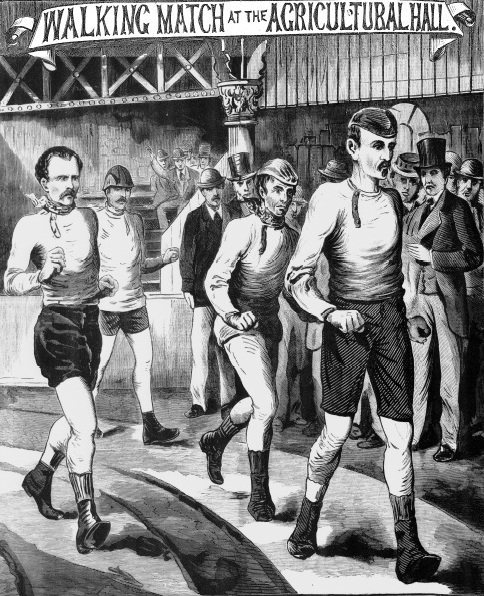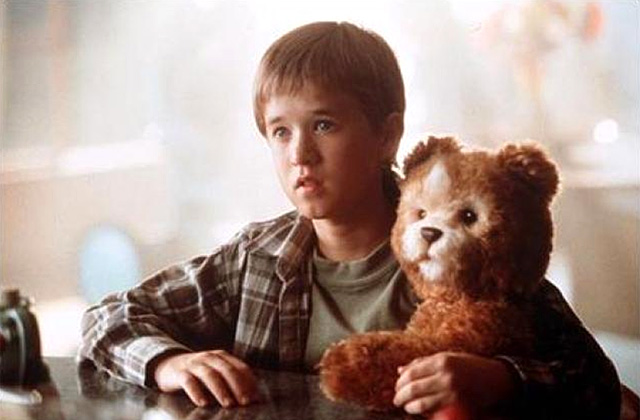By The Landlord
“Above our life we love a steadfast friend.” – Christopher Marlowe
"It may sound superficial, but can we make it official?
Give me hope, keep me sane,
Give me indefinite leave to remain." – Neil Tennant
"When a heart breaks how long does it take
Till the pain stops and only the memory remains?" – Dolly Parton
"If you want me to stay, I'll be around today
To be available for you to see
But I am about to go, and then you'll know
For me to stay here I got to be me." – Sly Stone
“What's the point of staying sober?” – Oliver Reed
In a world of uncertainty we sometimes need stability, people who will remain, prevail, endure and maintain. Remaining is a big word at the moment in the shadow of Brexit and other movements underpinned by conservative, even xenophobic, values, but staying has many meanings, especially in song. Many songs are, however, quite naturally, all about departure, leaving on a jet plane, car or bus, escaping to a new life, leaving others behind, but there are also hundreds about the opposite.
Songwriters of course yearn for change, stimulation and inspiration, and while topics such as departure and leaving have come up in the past, we are yet to focus on the opposite, the decision, or the request to stay where you are. “Should I say or should I go?” sang Mick Jones on that famous Clash record, and staying songs may have an element of leaving in them, for you can’t have one without a sense of the other, but this week the primary emphasis should mainly be on remaining.
Staying, like leaving, can have all sorts of positive and negative connotations. Is it a sign of fortitude or cowardice, tenacity or timidity to remain where you are? That depends on context. Staying is often associated being sane and sensible, faithful, consistent and strong, maintaining your position or your health, staying the course, keeping the straight and narrow, staying together, remaining true to yourself, having stamina, or as the Germans call it, Sitzfleisch, in other words, strong buttocks.
Who has the strongest staying power? “There are some four million different kinds of animals and plants in the world. Four million different solutions to the problems of staying alive,” says the great David Attenborough. Some are better at it than others. Evolution has a few examples, and it certainly isn’t homo sapiens, especially the way things are going.
But some life on Earth just stays and stays, such as crinoids (sea lilies), those ancient progenitors to echinoderms such sea urchins and starfish which have been around since the Ordovician period, roughly 475 million years ago. Now that’s staying power. Perhaps it helps that they are in the sea and out of our way. The same goes for the chambered nautilus, the last remaining representative of the nautiloids, a group of marine creatures that can be traced back to the Cambrian period – half a billion years ago.
And let’s hear it for horseshoe crabs, relatives of being related to spider and giant sea scorpions who bossed the oceans 420 million years ago.
Sticking around - coelacanths
And then there are coelacanths, known originally from fossils record dating back almost 400 million years and thought to have died out at the end of the Cretaceous period along with the dinosaurs. But then one was discovered in 1938 off the east coast of South Africa. And they are also our early missing link – possibly resembling those ancient fish species that evolved into the first land vertebrates over 350 million years ago, lungfishes and tetrapods, the four-legged vertebrates.
And on land, there are hardy cockroaches, as well as various reptiles who have stuck around, and will no doubt stay much longer than us. Tuataras are are the reptile relics of Sphenodontia, which dates back roughly 200 million years. It has that “third eye” on top of its head which perhaps changes in light cycles that the to regulate its circadian rhythms.
But then are, although for shorter periods the humans who stay. And stay. And stay. I'm not just talking about those who live long. Human endurance, however, is often not the sensible kind of survival achieved by these hardy plant and animals species, but by attention-seeking acts of absurdity. The Guinness Book of Records is filled with such feats either planned or otherwise, from hardcore couch potatoes, such as Chicago man Jeff Miller, who has the 72-hour record for sitting still watching TV (plenty of Sitzfleisch on him no doubt), to the more athletic tennis players John Isner and Nicolas Mahut, who in 2010 competed in the longest ever Wimbledon match – 11 hours five minutes over three days, resulting in a final set with a result of 70-68 games to Isner. You certainly can't find fault with their staying power. Fortunately they still have a lot of love for each other.
And then there's true absurdity, such as the longest ever staring match without blinking. Done for charity in Australia's Northern Territories, the final saw Fergal “Eyesore” Fleming and Steven “Stare Master” Stagg go eyeball to eyeball, the latter final blinking after a staggering, 41 minutes and 59 seconds. I'd like to say there wasn't a dry eye in the house, but there certainly was.
Dry eyes are not a problem however, when it comes to the feat of endurance and stupidity of putting a ferret down your trousers. It makes my eyes water just to think about it.
Ferrets down the trousers. Not exactly staying power, just scratchy, bitey stupidity.
Human endurance, and the vicarious enjoyment of it, has always been around. In Victorian Britain, walking races were a common attraction, as rivals went round around arenas for days, egged on by baying crowds, until rivals collapsed with exhaustion, such as at the belt events at the Royal Agricultural Hall in London (now Islington Business Centre) in the 1870s.
Walking contest, chaps? This could go on for days, if not weeks. The first Astley International Belt race at the “Aggie”, Islington, London, March, 1878.
Non-stop dancing contests have also been popular in the US, particularly during the 1930s Depression:
Why? It was all about the money. The longest one on record for that period was won by Mike Ritof and Edith Boudreaux who somehow slow-danced from 29 August 29, 1930, to 1 April, 1931 for a total of 5,5152 hours. They finally took home $2,000 (worth about $28,000 today). Would that even foot the bill for their sore feet and shoes?
Then for all sorts of reasons people have stood in ice for hours, sat in baths of baked beans, eaten increasingly hot chilli peppers, or yards of fresh nettles, but more romantically, on Valentine's Day 2013 Ekkachai and Laksana Tiranarat from Bangkok won the record with 58 hours 35 minutes, 58 seconds for kissing continuously. Pucker up!
And then there was the “Hands on a Hardbody” event, the first, in 1992, at a Nissan dealer in Texas. Participants, touching the vehicle to win it, were allowed a 5-minute break every hour and 15 minutes every six; and the last one standing kept it up for 87 hours. Imagine how it must feel to come second.
Touch the truck to win with your hands on a hardbody. Steady on …
Illusionist David Blaine has certainly tried (or appeared to achieve) many such endurance feats, such as being embedded in ice or hanging in a box by Tower Bridge in London for days, but perhaps the most bizarre show of staying power is that of New Delhi clerk Mahant Amar Bharti first raised his arm in 1973 in honour of the deity Shiva, and has never put it down since. You've got to put your hand up to him, that one will remain in the record books for a very long time.
Arm raiser Mahant Amar Bharti, keeping it up since '73
But who has the strong arms and staying power in a band? “Stamina is the force that drives the drumming; it's not really a sprint, says Rush’s Neil Peart, doing a massive solo on our Song Bar house kit. And who else stopping by to stay and talk about this topic? They are talking about it from all sorts of interpretative angles:
“Well, my idea of a good night out is staying in,” says the laid-back actor Martin Freeman, perhaps unsurprisingly, as he plays the sensible Dr Watson in the Sherlock series and the comfortably stay-at-home unwilling adventurer Bilbo Baggins in the film version of The Hobbit.
But can he match the staying-at-home-or-elsewhere power of David the robot boy in Spielberg’s A.I. (Artificial Intelligence) in a script by Stanley Kubrick, who waits for an eternity, beyond the end of humanity, under an iced up sea, hoping he will finally get a real mother. You can’t beat that for staying power. It’s beyond time.
David and Teddy will stay waiting forever in A.I.
“Now I don't think about time. You're here when you're here. I think about today, I just think about staying in tune,” says John Lee Hooker, taking up the topic in with an entirely different tune.
Now Fleetwood Mac’s (now ex) guitarist is in the house. “You just get out there and be what you want to be. That's part of evolving and part of staying true to yourself - part of remaining alive in a real authentic, long-term sense creatively: not listening to what other people tell you to be,” says Lindsey Buckingham.
Some musicians, unlike, members of the Stones or U2, for example, decide that staying it not the best for their music. "Me and Jerry Nolan left because we felt we weren't getting anywhere playing our old songs in tiny clubs. The group was getting stale and staying behind the times,” says the New York Dolls’ Johnny Thunders.
But now let’s take a wider view. The author Terry Pratchett is back with us, with this perspective: “We have been so successful in the past century at the art of living longer and staying alive that we have forgotten how to die. Too often we learn the hard way. As soon as the baby boomers pass pensionable age, their lesson will be harsher still.”
Meanwhile Oliver Reed is still here, drinking the bar dry, but isn’t it time to get on the dancefloor and stay there, just as those marathon dancers from the 1930s managed? Who’s this (dirty) dancing into the arena? “One thing I'm not going to do is chase staying alive. You spend so much time chasing staying alive, you won't live!” It’s only Patrick Swayze! Talking of staying alive, to end, here’s a couple of songs on this topic, which have been previously A-listed, but I hope might make it to the B-list. First up, the Bee Gees, and then the great Al Green.
And with that, I hope we’ll all stay together sharing music and making playlists for the long term. Helping keep that dream alive and returning to the guru’s chair is the wonderful AmyLee! Place your staying songs in comments below for the deadline on Monday evening 11pm (UK time) for playlists next Wednesday. Stay with us and you will be rewarded.
New to comment? It is quick and easy. You just need to login to Disqus once. All is explained in About/FAQs ...
Fancy a turn behind the pumps at The Song Bar? Care to choose a playlist from songs nominated and write something about it? Then feel free to contact The Song Bar here, or try the usual email address.







